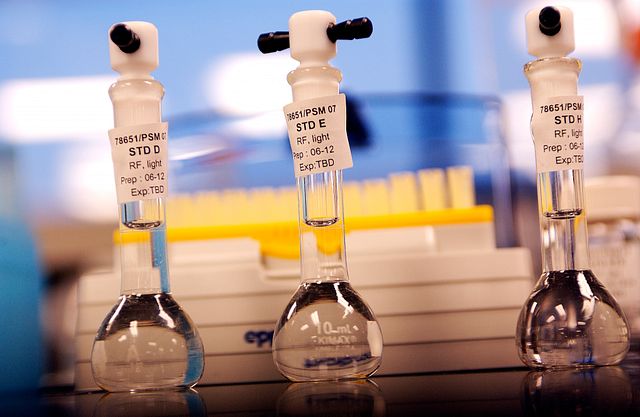As a potential drug candidate moves from drug discovery to drug development and post-marketing analysis, drug developers outsource some of their bioanalysis to bioanalytical laboratory services. Some biopharma may be entirely virtual and require a complete package of bioanalytical solutions. On the other hand, large drug-developing companies may outsource only a smaller fraction of bioanalytical services to a partner laboratory. But whatever the situation may be, there are specific considerations sponsors should take to unlock all reliable services provided by a bioanalytics company.
Insights for unlocking reliable bioanalytical lab services
Each bioanalytical laboratory is unique. Bioanalytical labs can be niche specific, or they can be a one-stop shop for all bioanalytical solutions. Bioanalytical laboratory services offer a broad range of services outside traditional bioanalytical solutions, such as manufacturing, central lab activities, and clinical trial management. Smaller bioanalytical laboratories may not fulfill larger studies, while well-established bioanalytical laboratories may think twice before committing to small-scale studies. Hence, unlocking all bioanalytical services can be challenging for sponsors.
Sponsors may require bioanalytical labs at different phases of drug discovery and development. Preclinical studies need support to file IND submissions and design subsequent clinical trials. A reliable bioanalytical laboratory should be able to comply with GLP regulations while supporting IND-enabling studies. Hence sponsors should ensure that during early clinical drug development, an ideal bioanalytical laboratory meets critical study timelines and then assess the capacity of a bioanalytical lab to perform clinical studies.
Clinical drug development begins with first-in-human studies and goes up to phase III clinical trials. As clinical studies are concerned with human testing, bioanalytical solutions become more complex, with GLP regulations often requiring a centralized sample processing unit. Reliable bioanalytical laboratories will consider all regulatory compliance to deliver robust safety and efficacy data during regulatory filings and post-marketing analysis.
Acquiring bioanalytical data takes place throughout the drug discovery and development process. Data around drug target and concentration, biomarkers, drug activity, drug metabolites, genetic markers, and anti-drug antibodies represent numerous data points during analytical studies. Each of these data points are crucial for transitioning drugs from early discovery studies to later clinical trials. However, sponsors must evaluate whether a bioanalytical laboratory has the necessary instrumentations and capacities to handle such diverse bioanalytical data.
Today the number of biotherapeutics entering the market has increased exponentially. However, this increase brings complexity to drug compounds and modalities. Developing such complex biotherapeutics not only requires analytical and regulatory expertise but also scientific knowledge and experience in method development and validation. As more complex biotherapeutics are produced, the need for innovative platforms and technology in addressing such compounds increases simultaneously. Hence ensuring that a bioanalytical laboratory is up for advances in scientific oversight and technical standards is critical.
Most importantly, a reliable bioanalytical laboratory should comply with regulatory guidelines for data management, sample handling and reporting, and assay development and validation. Some common regulatory guidance include the FDA, EMA, and ICH guidelines. In conclusion, understanding specific requirements for drug development studies is the key to unlocking reliable bioanalytical services.







